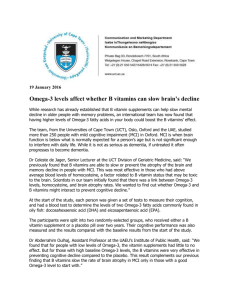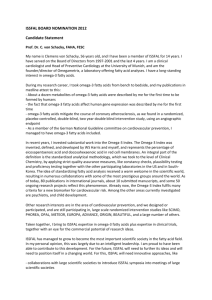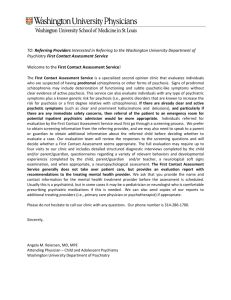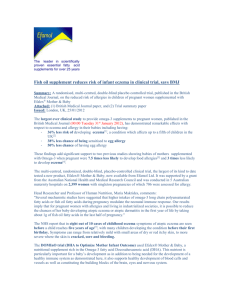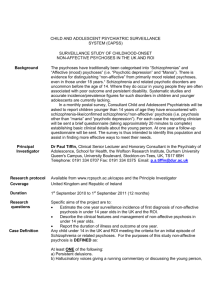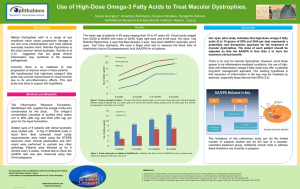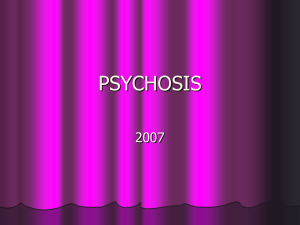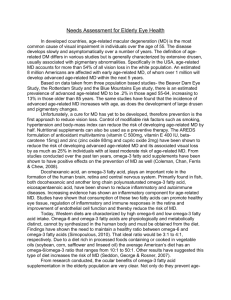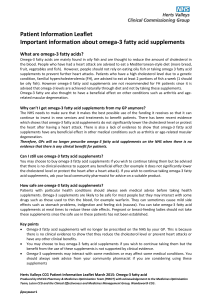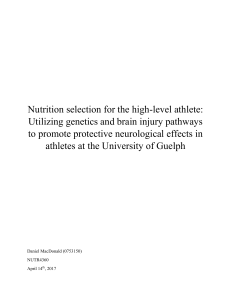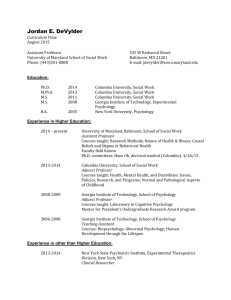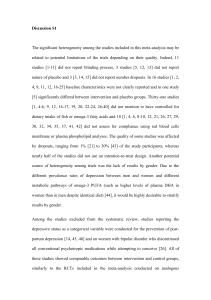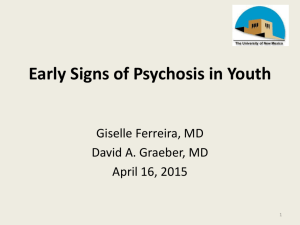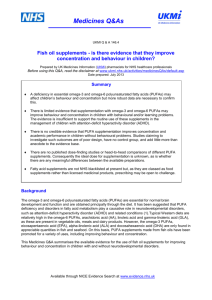Media Release
advertisement
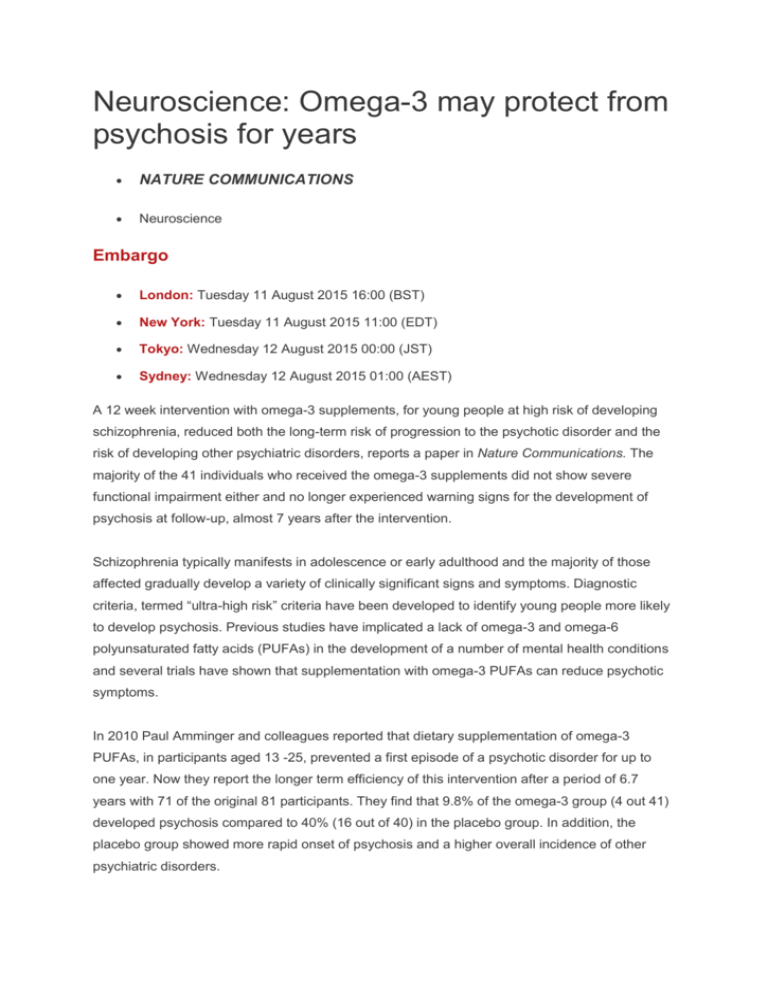
Neuroscience: Omega-3 may protect from psychosis for years NATURE COMMUNICATIONS Neuroscience Embargo London: Tuesday 11 August 2015 16:00 (BST) New York: Tuesday 11 August 2015 11:00 (EDT) Tokyo: Wednesday 12 August 2015 00:00 (JST) Sydney: Wednesday 12 August 2015 01:00 (AEST) A 12 week intervention with omega-3 supplements, for young people at high risk of developing schizophrenia, reduced both the long-term risk of progression to the psychotic disorder and the risk of developing other psychiatric disorders, reports a paper in Nature Communications. The majority of the 41 individuals who received the omega-3 supplements did not show severe functional impairment either and no longer experienced warning signs for the development of psychosis at follow-up, almost 7 years after the intervention. Schizophrenia typically manifests in adolescence or early adulthood and the majority of those affected gradually develop a variety of clinically significant signs and symptoms. Diagnostic criteria, termed “ultra-high risk” criteria have been developed to identify young people more likely to develop psychosis. Previous studies have implicated a lack of omega-3 and omega-6 polyunsaturated fatty acids (PUFAs) in the development of a number of mental health conditions and several trials have shown that supplementation with omega-3 PUFAs can reduce psychotic symptoms. In 2010 Paul Amminger and colleagues reported that dietary supplementation of omega-3 PUFAs, in participants aged 13 -25, prevented a first episode of a psychotic disorder for up to one year. Now they report the longer term efficiency of this intervention after a period of 6.7 years with 71 of the original 81 participants. They find that 9.8% of the omega-3 group (4 out 41) developed psychosis compared to 40% (16 out of 40) in the placebo group. In addition, the placebo group showed more rapid onset of psychosis and a higher overall incidence of other psychiatric disorders. A possible limitation of this study is the sample size, which is not sufficiently large to allow further analysis of subgroups and further research is necessary to discover a mechanism by which PUFA supplementation may improve mental health. Article and author details 1. Longer-term outcome in the prevention of psychotic disorders by the Vienna omega-3 study Corresponding Author Paul Amminger The University of Melbourne, Melbourne, Australia Email: gpamminger@gmail.com, Tel: +61 3 9342 2800 DOI 10.1038/ncomms8934 Online paper* http://nature.com/articles/doi:10.1038/ncomms8934 * Please link to the article in online versions of your report (the URL will go live after the embargo ends).


